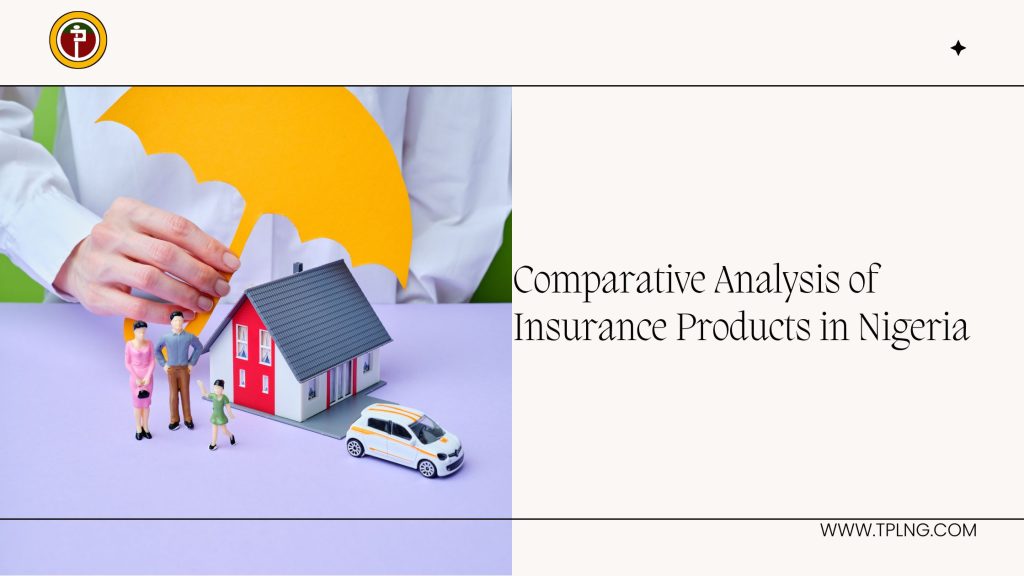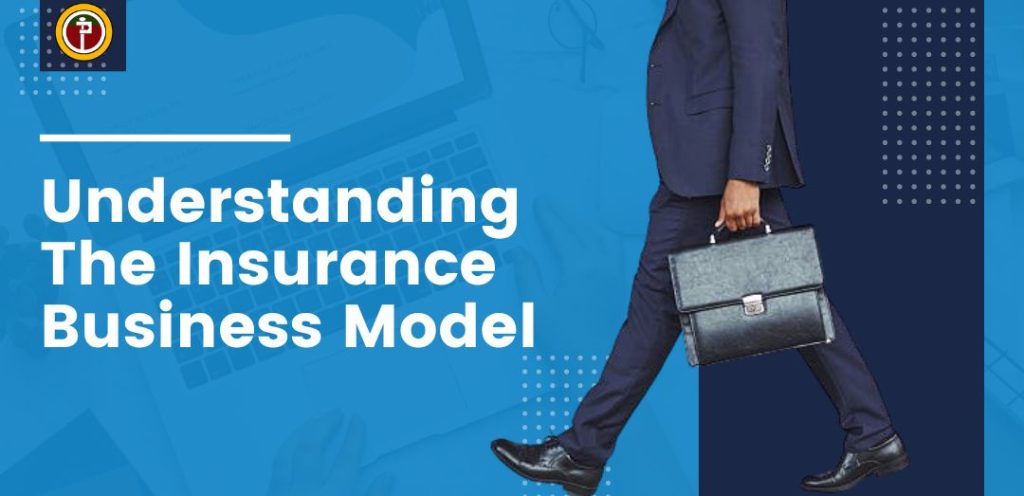In Nigeria’s evolving insurance landscape, various insurance products have emerged to cater to the diverse needs of individuals, businesses, and institutions. Understanding the different types of insurance and their specific benefits is crucial for making informed decisions. This article offers a comparative analysis of the key insurance products available in Nigeria, highlighting their features, coverage, and target audience.
1. Life Insurance vs. Health Insurance
Life Insurance is designed to provide financial protection to beneficiaries upon the policyholder’s death, helping to cover final expenses and providing financial stability for the family. It comes in different forms:
- Term Life Insurance: Coverage for a specific period (e.g., 10, 20 years). The policy pays out only if the insured passes away during the term.
- Whole Life Insurance: Offers lifelong coverage with a savings component, allowing policyholders to accumulate cash value over time.
- Endowment Life Insurance: Combines savings with life coverage, paying out a lump sum at the end of a specific term or upon death.
Health Insurance, on the other hand, focuses on providing coverage for medical expenses. It ensures access to medical care, including hospitalization, surgery, prescription drugs, and routine checkups. The National Health Insurance Scheme (NHIS) in Nigeria provides health coverage to formal sector employees, but private health insurance is also widely available.
Comparison:
- Life Insurance is focused on long-term financial protection for beneficiaries, while Health Insurance addresses immediate medical needs.
- Life Insurance can offer savings benefits (in whole life and endowment policies), whereas Health Insurance typically does not include savings components but ensures access to healthcare.
2. Motor Insurance: Comprehensive vs. Third-Party Insurance
Third-Party Motor Insurance is mandatory under Nigerian law. It provides coverage for damage or injury caused to another party in an accident where the policyholder is at fault. However, it does not cover damage to the policyholder’s vehicle or personal injuries.
Comprehensive Motor Insurance, as the name suggests, offers broader coverage. It includes third-party liability but also covers damages to the policyholder’s vehicle, theft, fire, and in some cases, personal injury.
Comparison:
- Third-Party Insurance is more affordable but provides limited coverage. It is ideal for older vehicles or individuals seeking basic legal compliance.
- Comprehensive Insurance is more expensive but offers extensive protection, making it suitable for new or high-value vehicles and for drivers seeking full coverage.
Also read:
A Guide to Insurance for People with Pre-Existing Medical Conditions
A Guide to Insurance for Parents and Guardians
Understanding the Difference between Market Value and Insured Value
Understanding the Difference between Insurance Brokers and Agents
3. Property Insurance: Home Insurance vs. Fire Insurance
Home Insurance provides coverage for damages to a property caused by a range of risks, including fire, theft, flood, and vandalism. It often includes both the building and its contents, ensuring that homeowners can recover from various financial losses.
Fire Insurance, on the other hand, is a more specific policy focused solely on damages caused by fire. It is typically cheaper than comprehensive home insurance but offers limited protection.
Comparison:
- Home Insurance is comprehensive, covering multiple risks, while Fire Insurance focuses exclusively on fire-related damages.
- – Homeowners who want broader protection should consider Home Insurance, while those only concerned with fire-related risks may opt for Fire Insurance for affordability.
4. Group Life Insurance vs. Individual Life Insurance
Group Life Insurance is typically offered by employers to provide coverage for their employees. In Nigeria, it is mandated that employers with five or more employees must provide group life insurance equal to at least three times the annual salary of each employee. This policy helps the dependents of employees in the event of their death.
Individual Life Insurance is a personal policy taken out by individuals. It allows the policyholder to choose the sum assured and the type of life insurance that best fits their needs.
Comparison:
- Group Life Insurance is employer-sponsored, often more affordable or free for employees, but offers limited customization.
- Individual Life Insurance allows for personal control over coverage amounts and policy terms, though it typically costs more.
5. Travel Insurance vs. Personal Accident Insurance
Travel Insurance provides short-term coverage during trips, protecting travelers against various risks, such as trip cancellations, medical emergencies, lost luggage, and accidents while traveling.
Personal Accident Insurance, however, focuses specifically on providing coverage for injuries or death due to accidents, whether they occur while traveling or in everyday life. It provides compensation in the event of death, dismemberment, or disability caused by accidents.
Comparison:
- Travel Insurance is a short-term policy specific to trips, offering broader coverage for trip-related issues like delays or cancellations.
- Personal Accident Insurance offers year-round accident coverage and may not include trip-related risks but provides a more focused form of protection against accidents in general.
6. Agricultural Insurance vs. Business Interruption Insurance
Agricultural Insurance is designed to protect farmers and agribusinesses from the financial risks associated with crop failure, livestock loss, and other agriculture-related challenges. In Nigeria, the Nigerian Agricultural Insurance Corporation (NAIC) offers policies that cater to these needs, including coverage for natural disasters and market volatility.
Business Interruption Insurance, on the other hand, provides compensation for the loss of income a business may suffer due to disruptions caused by events such as fire, flood, or other unforeseen circumstances that halt operations.
Comparison:
- Agricultural Insurance is specific to the agricultural sector, offering protection against sector-specific risks like crop failure or livestock loss.
- Business Interruption Insurance is broader, covering any business sector affected by operational disruptions. It is ideal for businesses that rely heavily on continuous operations to generate income.
7. Professional Indemnity Insurance vs. Public Liability Insurance
Professional Indemnity Insurance provides protection to professionals, such as doctors, lawyers, and consultants, against claims of negligence or malpractice made by clients. It covers legal fees, settlements, and compensation.
Public Liability Insurance is broader, offering protection to businesses against claims made by third parties (e.g., customers or visitors) for injuries or damages that occur on the business’s premises.
Comparison:
- Professional Indemnity Insurance is tailored to individuals or businesses providing professional services, while Public Liability Insurance is more general and applies to businesses interacting with the public.
- Both cover legal costs, but Professional Indemnity focuses on client claims for professional mistakes, while Public Liability covers accidents or damages involving the general public.
Although this isn’t every insurance product available in Nigeria, the above analysis highlights some of the most common and essential options for individuals and businesses. By understanding the differences in coverage, benefits, and target audiences, policyholders can make more informed decisions tailored to their unique needs. At Transparent Protection Ltd, we strive to demystify the complexities of insurance, ensuring our clients have the knowledge to select the right products for comprehensive protection.
Take advantage of the next article, subscribe now!
Have questions about claim settlements or need assistance with your insurance policy? Our team is here to help! Reach out to us via email at info@tplng.com or give us a call at 0905-776-6182. We’re committed to ensuring genuine claim settlements and supporting our valued members.
TPL, your satisfaction is our priority.




